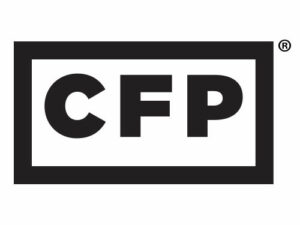By Bryan Trugman, CFPⓇ
People often don’t realize the time sensitivity of financial planning until they turn 50, and a lot of opportunities are missed as a result. Your 40s are an exciting time with new opportunities and challenges—and also a critical window to change your habits. Here, I will cover three key points that I find often come up in conversations with my clients during this phase of life.
Not Talking to Your Spouse About Money
Money problems are a major source of marital conflict, and most unnecessary conflict stems from couples who don’t communicate. Spouses come from different households where they learned different ways of thinking about money, and those value systems are guaranteed to conflict at least some of the time. After age 40, money gets more complicated, and new conflicts will arise. During your 20s and 30s, you might not have needed to talk as much about money, because there wasn’t as much to talk about. If you and your spouse both work, you’ll have two income streams and potentially two retirement plans. Taxes can get complicated. One or both of you may have aging parents who require care. One or both of you may inherit money or property. You have to prepare for the possibility of health problems or disabilities. Communication is the key to navigating these challenges and more.
Not Teaching Your Kids About Money
It’s never too early to start teaching your kids how to manage money. When your kids become teenagers, they will need to start learning new lessons about money. They must exercise self-discipline when they start collecting a paycheck, which will be easier if you’ve already taught them to save up money at a younger age. You should speak with your kids often about how to plan for a successful future, including how to pay for college and make the transition toward adulthood. You and your spouse will need to bring the kids together and have conversations about money as a family, and then decide when it’s time for the kids to start having a say in financial decisions. Getting your kids accustomed to the habit of discussing money openly is one of the best ways to set them up for lifelong success.
Talking About the Future Without Making a Real Plan
Talking to your spouse and your kids about money is important, but discussion should lead to action. Your kids will pay attention to what they see you doing. Set an example by making a plan for your retirement, putting that plan on paper, and talking it over with the whole family. It’s human nature to put off taking action for as long as we think we can. Help your kids establish the habit of creating plans with specific action steps and committing to do things by certain times. By creating a plan for your retirement and your own future, you can provide an example for your kids to follow. When you create a plan and begin executing the plan, you feel relief from the anxiety that can come from going to bed at night with unresolved questions about your financial future.
I’m Here to Help
If you’re ready to start putting together a concrete plan for your retirement, let’s get a date on the calendar to connect. Part of my job is helping my clients think through the more difficult questions about their future and the different options and strategies available. Reach out to me via email at btrugman@attitudefinancial.com or give me a call at (516) 762-7603 to set up a consultation.
About Bryan
Bryan Trugman is managing partner, co-founder, and a CERTIFIED FINANCIAL PLANNER™ practitioner at Attitude Financial Advisors. With more than 13 years of experience, Bryan specializes in addressing the financial needs of new parents as they seek to realign their finances, assisting divorced individuals as they navigate an unforeseen fork in the road, and strategizing with those seeking to accrue a dependable retirement nest egg. Bryan is known for being a good listener and building strong relationships with his clients so he can help them develop a customized financial plan based on what’s important to them. He is passionate about helping his clients experience financial confidence so they can worry less and play more. Bryan has a bachelor’s degree in industrial and systems engineering with a minor in mathematics from State University of New York at Binghamton. He has served on the board of the Financial Planning Association and continues to be actively involved in the national organization. He is also a member of the Plainview-Old Bethpage Chamber of Commerce and has served as its vice president and as a board member. When he’s not working, you can find Bryan on the ballroom dance floor or engaged in a fast-paced game of doubles on the tennis court. To learn more about Bryan, connect with him on LinkedIn. Or, watch his latest webinar on: How Much Is Enough? A Surprisingly Simple Way to Calculate Your Retirement Savings Needs.



